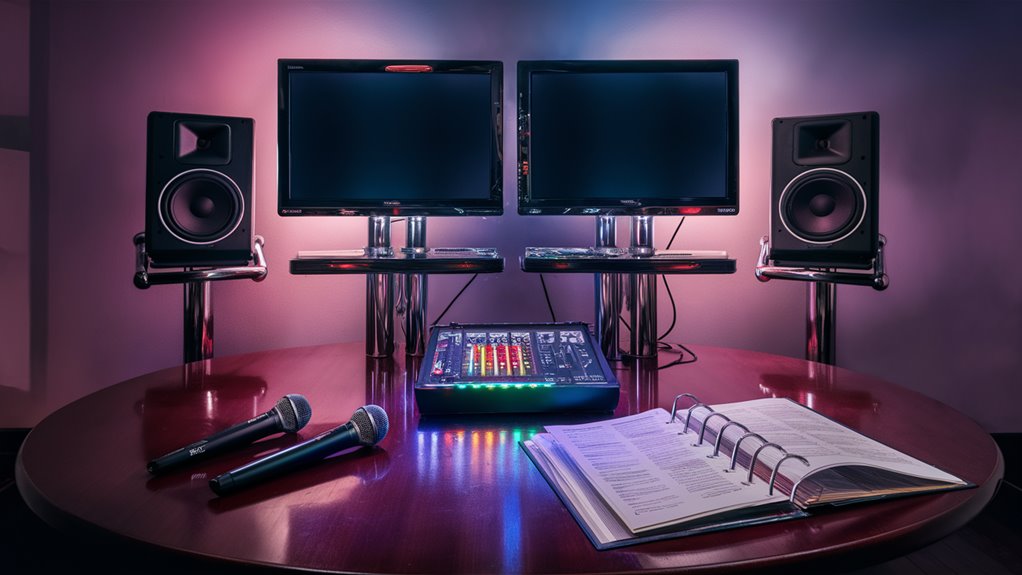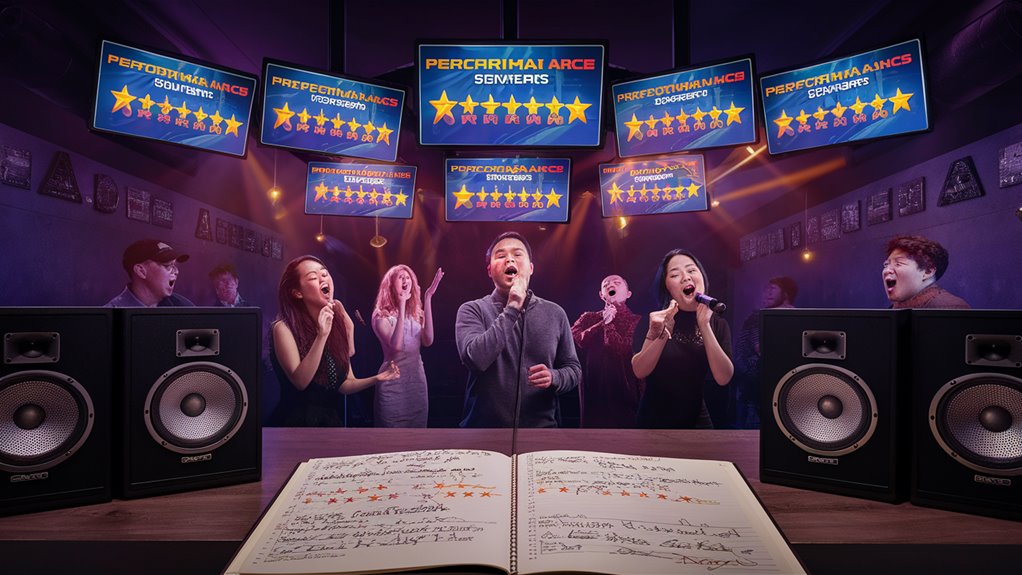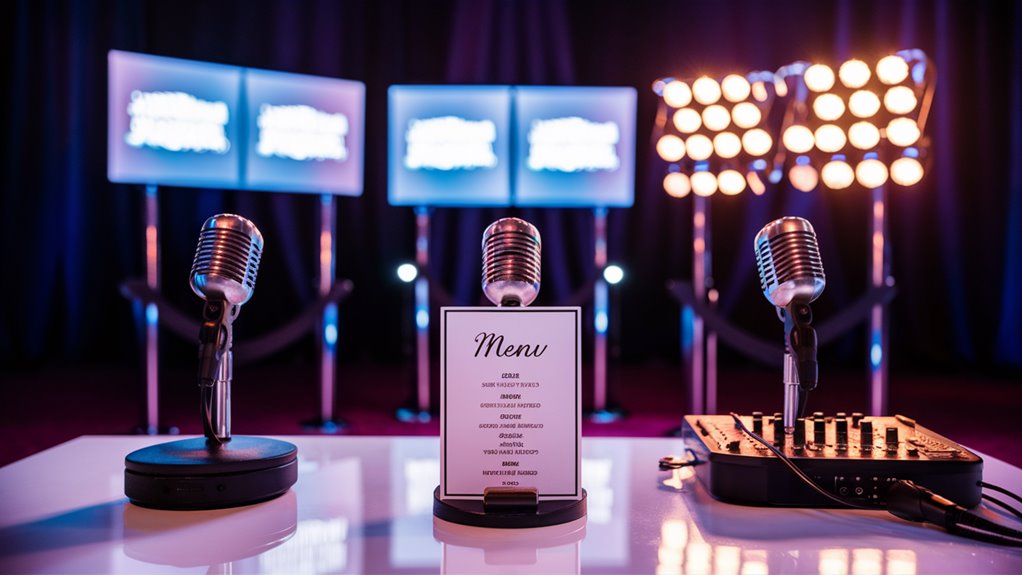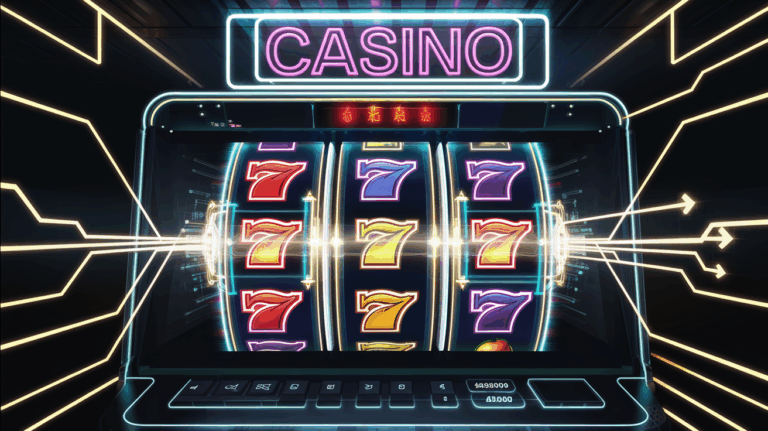
Top Tips to Pick the Best Karaoke Service

Main Points for Karaoke Service Choice
When picking a good karaoke service for your event, look at these five key points:
Gear Quality and Tech Needs
- Loud speakers (min 500W power) 여행자 주의사항 보기
- HD screens with sharp view
- Extra gear for smooth show
- Pro mics with great sound
Wide Song List
- Big song list with 10,000+ tracks
- Songs from pop, rock, country, and old hits
- Songs in many languages
- New songs added often
Pro Skills and Proof
- Sound setup cert
- At least 5 years doing live shows
- Know-how in both sound and video gear
- Has insurance
Right for the Space
- Checks how much room is needed
- Matches power needs
- Can tune sound for space
- Plans setup and takedown
Clear Terms and Trust
- Clear cost info
- Good reviews (4.5+ rating)
- Paperwork if stuff goes wrong
- Rules on booking and canceling
Pick services that are great in these areas to make sure your event has an amazing karaoke experience for everyone.
Gear Quality and Sound Setup
Guide on Pro Karaoke Gear and Sound
Key Audio Gear
Good speakers, strong amps, and flexible mics make up the base for top karaoke gear.
Two wireless mics are key for active shows and smooth singer swaps. This gear must suit many voice types while keeping sound clear.
Sound Control and Mixing
Advanced mixers are key to balance voice and music right.
Systems should cut out extra noise and manage echoes to stop bad sound bits.
Extra gear, like more mics and cords, ensures the fun keeps going all event long.
Screen Needs
Sharp displays or pro projectors must show clear lyrics for all to see from far.
The lyric sync tech needs good timing, using moving balls or lit text to guide singers.
Tuning to room sound balances audio well, making the event feel more real for all taking part.
Songs and Music
What to Look for in Song Lists
Key Needs for a Karaoke Song Set
The heart of a pro karaoke service is in its wide song list.
A good base list has 10,000+ songs from many times, styles, and languages. The best spots keep a well-kept digital list that is easy to search.
Ordering and Finding Songs
New karaoke systems should show both screens and printed lists, where guests can search by:
- Artist names
- Song titles
- Music styles
- Year of release
- Language
Music List Needs
Current and Classic Hits
A good karaoke set balances new hits with classic songs. This mix pulls in people of all ages and tastes.
Legal Stuff and Quality
Pro karaoke companies need:
- Right papers for songs
- Top sound tracks
- New songs often
- Follows song rules
Choices for Events
Playlists for events should offer:
- Themes
- Focus on one style
- Special song asks
- Songs right for the crowd
Watch how often songs play and make sure the service lets you try before you pick.
Ask for full song lists to see if they fit your event needs and who comes.
Karaoke Host Know-How
Host Skills:
Host Skills and Tech Know-How
A pro karaoke host’s skills are key to a smooth event.
Main parts are handling sound, knowing how to keep the crowd happy, and fixing tech stuff fast.
The best host keeps sound great and sorts any tech troubles quick while the show goes on.
More Host Skills
Seasoned karaoke hosts are great at:
- Moving the crowd
- Keeping the show’s pace
- Handling the sign-up list
- Adapting to the space
- Talking with people singing
Making Events Work
Top karaoke people know how to mix a fun vibe with pro work. They check out:
- The feel of the room
- How to line up acts
- How to fix issues
- How to use a mic right
- How to switch between singers without a break
Checking Hosts
When looking at karaoke services, think about:
- Past event proof
- What people say
- Live show examples
- How different each event is
- Knowing all the gear
A host’s past wins show they can turn your event into top notch fun.
Space Works
Full Guide on Space for Karaoke

Must-Have Tech
Checking the place well is key before picking a karaoke team.
Start by looking at the power setup:
- If power spots are all over
- How much power it can take and needs
- Where power can be reached
Sound and Space Thoughts
The place’s sound setup can make or break karaoke fun. Important bits are:
- Testing how sound moves in the room
- Where sound bounces
- Finding quiet spots
- Options to stop echoes
Looking at Space and Setup
Think about the room needed for the best karaoke setup:
- How big the singing area should be
- Where to put speakers
- Where screens can go
- How high the ceiling is
- If anything blocks the view
Rules and Needs of the Place
Make sure you know the place’s own rules:
- How loud you can be
- When you can be loud
- If insurance is needed
- If there are union rules
- What outside teams can do there
Gear already there
Look at what gear is already in the place:
- If there’s built-in sound gear
- If there are screens ready to use
- How strong the internet is
- How cables are set
- If house gear can work with yours
Staying Safe and Right
Check if these are fine:
- Fire rules
- Clear ways out
- Keeping gear safe
- Cover if something goes wrong
- Local laws on fun
Reviews and Proof
Looking at What Others Say
Checking Out Reviews
Pro karaoke teams build a name via good, steady work on many spots.
Start by looking at real reviews on Google, Yelp, and spots for booking vendors. Look for common hints in what folks say, especially about sound gear quality, song list range, and how well they work.
Talking to Past Clients
Real words from past customers give true hints on a karaoke provider’s work.
Call old customers from the list given by the vendor. Talk about key things like how well gear worked, how they handle shows, and how they fix problems.
Check the provider’s work history and certs.
Seeing How They Show Up Online
A good web look often means a solid deal and good work. Check the provider’s online spots for:
- New show proof
- How they talk to customers
- New updates on their portfolio
- Details on gear
- Plans if something goes wrong
Plans for problems and tying up loose ends show they know their stuff, while ties to pro groups show they are on top in the field.
Go for vendors with full tech help plans and good records in handling real shows.
Costs and What You Get
Guide on What Karaoke Costs
What the Packages Include and Cost
What karaoke costs usually depends on basic hour rates to full event deals.
Basic deals have must-have gear (speakers, mics, screen) and usual song lists, while top deals give more like custom playlists, more screens, and pro hosts.
Usual Price Setup
Event prices mostly range $150-500 for a 3-4 hour slot, depending on where and who. Key things to think on include:
- Fees for setup and takedown
- Money needed upfront
- Rules if you cancel
- Costs for travel
- Cover if gear gets hurt
More Features and Extras
Big karaoke deals might have:
- Pro light shows
- Options to record the event
- Backup gear
- Bigger song lists
- More ways to set up screens
Ways to Save
When picking a karaoke deal, look at:
- Clear price lists
- Choices on how long you book
- Cuts if you buy more
- Rates for longer bookings
- Deals depending on the season
Look for teams with clear prices and make sure all services are listed before you book.
Big events might get better rates or more in the package.
Tech Help and Backup Plans
Tech Help and Backup for Karaoke Teams
Pro Backup Setup
Good tech help and solid backup plans are must-haves when checking karaoke providers.
Pros should have ready help plans and quick help during shows.
A 24/7 help line or tech person on-site shows top service for high-end karaoke teams.
Extra Gear and Systems
Having more gear keeps the show smooth if trouble hits. Leading teams use many backup systems including:
- Extra sound gear (speakers, amps)
- More mics and cords
- Other screens
- Extra karaoke setups
- More than one song list copy
Plans for Problems and Risk
Pro karaoke teams should have strong plans for issues that are common:
- Dealing with power loss
- What to do if gear breaks
- Fixing sound problems
- Plans if the network goes down Karaoke Bar vs. KTV: Understanding the Key Differences
What You Should Get in Writing
Service deals should show all tech help details including:
- How fast they respond
- How they swap broken gear
- What you get if service stops
- Cover if something goes wrong
- Written backup plans
Check provider past work through what clients say and history of shows to make sure you get solid service.



